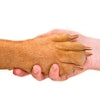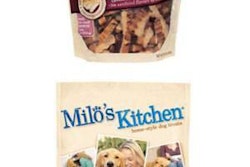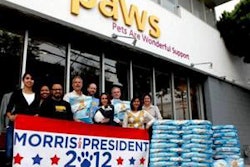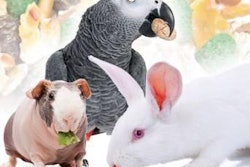While the petfood and pet care industries have continued to chug along despite the economy, still sluggish in many parts of the world, there's no doubt that some pet owners have been hit hard by loss of jobs, wages or homes. In the US, at least 5 million pets enter animal shelters each year for a variety of reasons; it's difficult to find up-to-date data on how many are surrendered due to owners' inability to afford petfood or care.
However, we know that since the recession began in 2008, more petfood banks have come into existence, and similar programs to provide food to shelters, rescue groups and pets displaced by natural disasters have grown. For example, the Rescue Bank was born in 2006 after Hurricane Katrina, when Elizabeth Asher and John Kane of Houston decided to create a program to match up donations from petfood companies with rescue groups and efforts needing help at a given time.
Since then, the Rescue Bank has distributed millions of pounds of food and supplies to needy pets through pre-approved groups of all sizes throughout the US. The community-based petfood banks and pantries it supplies help families keep their pets in their homes, the Rescue Bank said.
Of course, such a program would not be possible without the generosity of petfood manufacturers and marketers; nearly every company in our industry around the world has a program or foundation to donate excess product or a certain percentage of production to groups in its community and/or to regional and national programs.
Some petfood companies do this quietly, without seeking any type of promotion or publicity; some make it a central part of their marketing campaigns. A few years ago, Darford, a Canadian manufacturer, created a Plus One Movement, packaging its Zero/G dog food products with a small donation bag that purchasers could place in a bin at participating pet retailers; the donation packs were then distributed to animal shelters.
This issue's featured company takes that concept even farther: FreeHand, launched just last year, has based its entire business model on the promise that for every package of its dog food purchased, the company will donate a package to a rescue group. What's more, FreeHand's distribution channels include selling its products through rescue groups themselves, with packaging thanking the company's suppliers and vendors. Tom Bagamane, FreeHand's co-founder and managing director, said the company and its unique business model would not have been viable without generous concessions from those vendors. (Read more on p. XX.)
Pet Food Stamps is another new US organization stepping up to help pets whose owners need a financial assistance. A non-profit based in New York, the program was created to fill the gap in the US food stamp program for people, which does not cover purchases of petfood or pet supplies, said Marc Okon, founder and executive director.
Families in need can apply online (and soon through the mail); once financial need is verified, the families will receive monthly shipments of petfood from online retailer PetFlow.com for up to six months. As of press time, Okon said more than 45,000 pets had entered the program in just two weeks.
Besides being the program's exclusive provider, PetFlow.com is also helping promote Pet Food Stamps by offering a discount of US$10 off a petfood order of US$40 or more from any first-time shopper on its site (using the code PFS). If your brand is one of the more than 200 carried by PetFlow.com, your products might be helping pets and families in need. If you would like to ensure your support, Pet Food Stamps welcomes donations and corporate sponsorships, too.


















